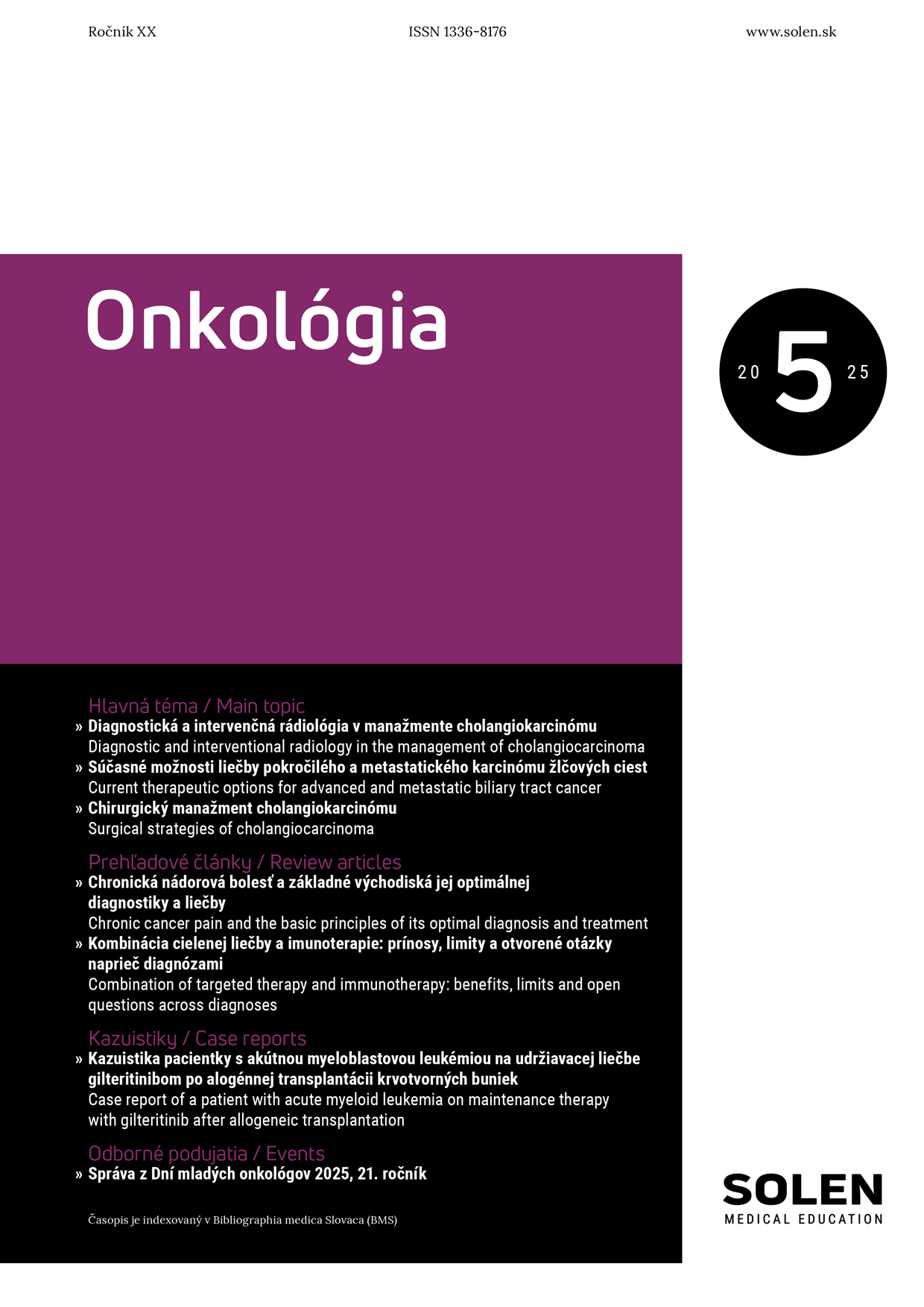Lekárska genetika a diagnostika 1/2024
Serum level of microRNA miR-371a-3p as a biomarker in the management of testicular germ cell tumours
Malignant tumours of the testicles are among the rarely occurring malignancies, yet they represent the most frequently diagnosed malignant disease in men at a relatively young age. The clinical management of germ cell tumours (GCTs) is based on the monitoring of serum tumour markers α-fetoprotein (AFP), β-human chorionic gonadotropin (β-HCG) and lactate dehydrogenase (LDH). Recent studies have pointed to some microRNAs as promising and prospective tumour markers in GCTs with higher sensitivity and specificity than classical serum markers. Moreover, their increased serum levels have been shown to be associated with clinical stage, tumour size and response to treatment. The aim of our study was to analyse the possibility of incorporating miR-371a-3p serum levels into routine laboratory diagnostics in the clinical management of patients with GCTs. The level of circulating microRNA miR-371a-3p in the blood serum was measured as a relative level to the endogenous control by quantitative PCR. During the years 2021 and 2023, at the National Oncology Institute, we examined serum samples from 57 patients with GCTs, of which 52 were patients with testicular germ cell tumour (TGCTs) and 5 with extragonadal GCTs. The present study supports the clinical value of miR-371a-3p level measurement in the management of patients with TGCT/GCTs as a suitable biomarker predicting prognosis in treatment.
Keywords: microRNA, miR-371a-3p, quantitative PCR, testicular germ cell tumours, serum biomarkers

















